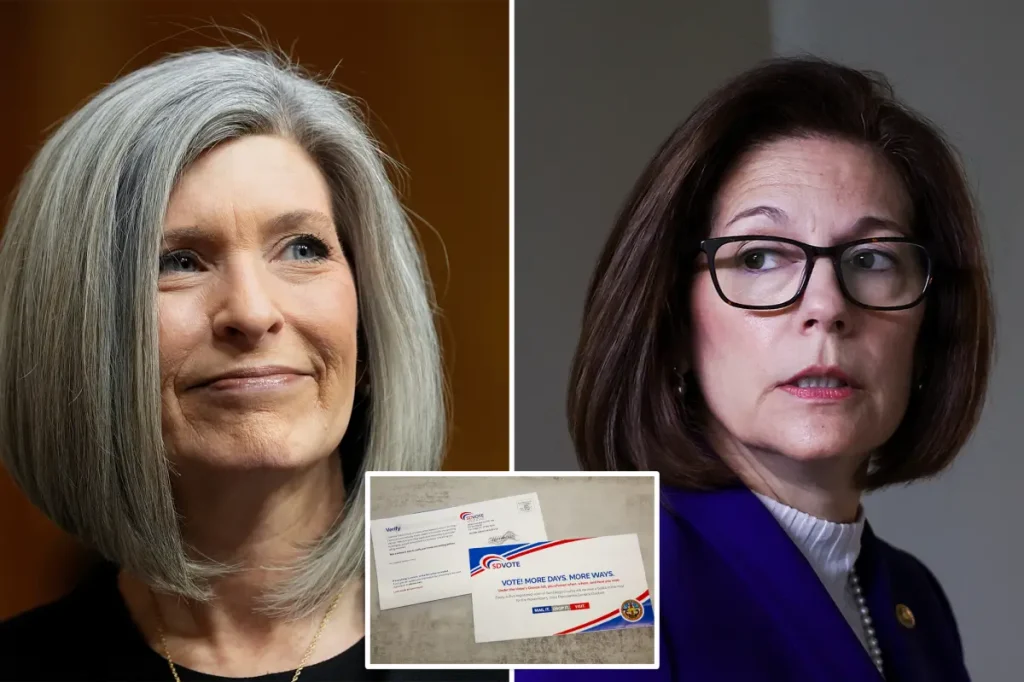Tackling Political Junk Mail: Bipartisan Effort to End Postal Subsidies
In a refreshing display of bipartisan cooperation, Senators Joni Ernst (Republican-Iowa) and Catherine Cortez Masto (Democrat-Nevada) have joined forces to address an issue that affects American households regardless of political affiliation: the overwhelming volume of political junk mail. Their proposed legislation, aptly named the “Ending Subsidies for Political Junk Mail Act,” aims to eliminate a significant perk that national and state committees of major political parties currently enjoy—a 40-60% discount on postal rates typically reserved for nonprofit organizations. This preferential treatment, which isn’t extended to third parties, essentially subsidizes the flood of political mailers that inundate our mailboxes, particularly during election cycles. As Senator Ernst pointedly remarked, “If the American people must pay full price to send a Christmas card that their families actually want, then political parties should have to pay full price to send junk mail that nobody wants.” The bill represents a practical approach to reducing waste and ending what Ernst describes as “welfare for Washington consultants.”
The scale of the problem is staggering. In the 2024 presidential election cycle alone, Americans received over 2.3 billion pieces of political mail, according to the Postal Regulatory Commission. This deluge of often unwanted political advertisements and solicitations not only creates environmental waste but also contributes to the financial strain on the U.S. Postal Service, which has been struggling financially for years. The USPS lost $9.5 billion last year and $6.5 billion in 2023, facing challenges from both retiree pension requirements and declining mail volume since 2006. Against this backdrop of financial distress, the senators argue that subsidizing political mailers—much of which ends up immediately discarded—makes little sense. As Ernst emphasized, “Especially as the U.S. Postal Service loses billions every year, there is absolutely no reason to subsidize spam that will wind up in the trash.”
The current system creates a curious inequity in who benefits from postal discounts. Official Republican and Democratic campaign committees for both the House and Senate qualify for these reduced rates, as do certain voting registration officials. Meanwhile, ordinary citizens who wish to communicate with their elected representatives through traditional mail receive no such discount. This disparity highlights a system that seems to prioritize political messaging over civic engagement. The proposed legislation would level this playing field, requiring political organizations to pay the same postal rates as regular citizens. Senator Cortez Masto frames the bill as providing “Americans relief from junk mail,” acknowledging the widespread frustration many feel when their mailboxes overflow with political solicitations that often go straight to the recycling bin.
The nonprofit postal discount that political committees currently enjoy puts them in the same category as religious institutions, educational organizations, fraternal societies, agricultural groups, labor unions, veterans’ organizations, scientific associations, and charitable foundations. While these other entities typically provide direct community services or advance public welfare in various ways, political committees primarily serve partisan interests and election campaigns. This classification raises questions about whether political organizations truly align with the public service mission that typically justifies nonprofit postal privileges. By removing political committees from this discount category, the Ernst-Cortez Masto bill would create a clearer distinction between organizations serving broad community interests and those primarily engaged in partisan political activities.
The timing of this legislation is particularly significant as it comes just ahead of the 2026 midterm election cycle, when both major political parties would typically ramp up their direct mail operations. Without the subsidy, political committees would face the true market cost of their mass mailing strategies, potentially encouraging more targeted, efficient communication approaches. This could lead to less wasteful campaigns and perhaps even drive more innovation in how political organizations communicate with voters. Digital alternatives, which often have lower environmental impacts and can be more precisely targeted, might become more attractive options when the artificial cost advantage of subsidized mail is removed. Furthermore, the bill could indirectly benefit the Postal Service’s financial health by ensuring that one of its heaviest seasonal users—political campaigns—pays fair market rates for the service.
Beyond the practical implications for mailboxes and postal finances, the Ending Subsidies for Political Junk Mail Act represents something increasingly rare in American politics: a truly bipartisan effort to solve a common problem. With Senator Ernst from the Republican Party and Senator Cortez Masto from the Democratic Party co-sponsoring the legislation, the bill demonstrates that reducing government subsidies for partisan activities can appeal across the political spectrum. This collaboration suggests that even in a deeply divided political landscape, there remain issues where practical governance can transcend partisan boundaries. As Americans increasingly express frustration with political polarization and government inefficiency, this modest but meaningful reform offers a template for how legislators might find common ground on other issues as well. Whether the bill ultimately passes or not, its introduction signals a recognition that some problems affect all Americans regardless of political affiliation, and sometimes the simplest solutions are the most broadly appealing.


